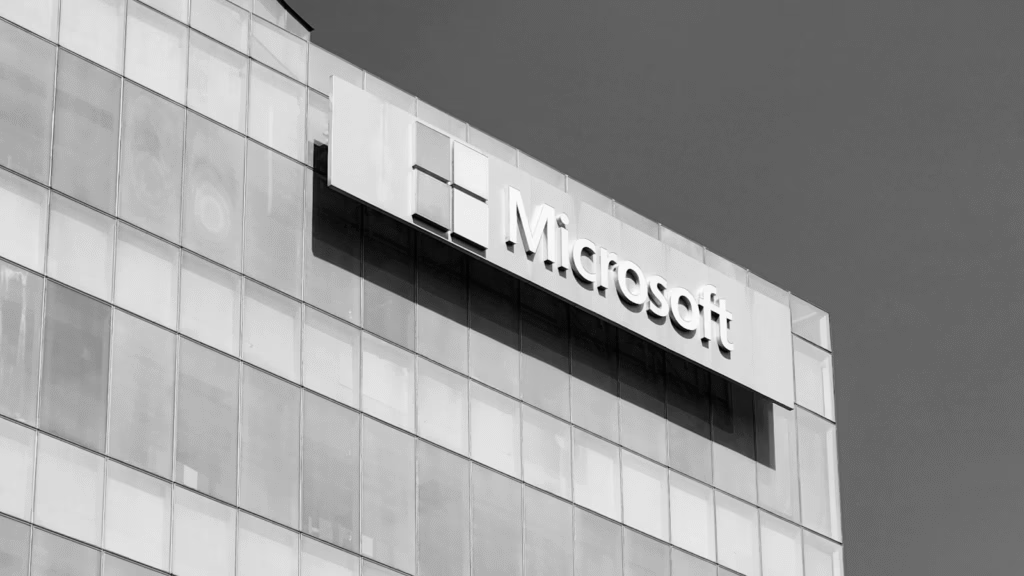Talk about perfect timing. Just as Donald Trump lands in London for his state visit, Microsoft drops the bombshell announcement of their largest ever UK investment – a whopping £22bn to build Britain’s biggest supercomputer and expand AI infrastructure.
This isn’t just one company making moves. We’re looking at a massive £31bn US-UK Tech Prosperity Deal that’s reshaping how Britain positions itself in the global AI race. From Google’s £5bn commitment to Nvidia’s 120,000 processor rollout, American tech giants are betting big on Britain becoming Europe’s AI powerhouse.
Microsoft Leads the Charge with £22bn Supercomputer Investment
Microsoft’s commitment isn’t just about throwing money around – they’re building the UK’s largest supercomputer. This represents their biggest single investment in British infrastructure, signaling serious confidence in the UK’s tech capabilities.
The deal comes at a crucial moment. While the EU tightens AI regulations and the US races ahead with development, Britain’s positioning itself as the “Goldilocks zone” – regulated enough to be trustworthy, flexible enough to innovate.

Google, Nvidia, and OpenAI Join the £30bn Investment Spree
The numbers are staggering:
Google is committing £5bn over two years for AI research and a new Hertfordshire data centre. That’s a statement about Britain’s research potential.
Nvidia is deploying 120,000 processors in their largest European rollout. CEO Jensen Huang called the UK a “Goldilocks position” where talent, research, and industry perfectly align.
OpenAI is partnering with British firm Nscale for the Stargate data centre in the North East’s new AI growth zone. Sam Altman praised the UK as a “longstanding pioneer of AI” with world-class researchers.
Salesforce is investing £1.4bn to make their UK operations the European AI hub, while AI Pathfinder commits over £1bn in computing capacity.
What This Means for Britain’s AI Sovereignty
Prime Minister Keir Starmer called this a “generational step change” in US-UK relations. But critics are asking: does massive US investment help or hurt Britain’s tech independence?
The government promises this deal will encourage a “sovereign AI ecosystem.” British companies like Arm are central to Nvidia’s chip designs, and domestic quantum firms like Oxford Quantum Circuits are getting commercial backing.
Yet there’s the elephant in the room – are we becoming too dependent on US infrastructure? Shadow Science Secretary Julia Lopez warned that despite this “vote of confidence,” Britain’s struggling with declining foreign investment elsewhere, including AstraZeneca’s paused £200m Cambridge investment.
The Nuclear and Quantum Computing Wildcard
The deal isn’t just about AI. There’s serious money flowing into advanced nuclear energy and quantum computing. Companies like Rolls-Royce are eyeing small modular reactor opportunities, though it’s unclear who foots the bill – taxpayers or consumers.
On quantum, British firms like Cesco Magnetics and Oxford Ionics are getting commercial investment backing. This could be where Britain really differentiates itself from US and EU competitors.

Will Britain Become an AI Maker or Just a Consumer?
The big question: can Britain leverage this US capital to become a genuine AI powerhouse, or will it remain dependent on foreign technology?
The UK’s betting on institutions like the AI Security Institute to help domestic companies scale. Data centres are getting fast-tracked approval, and the government’s positioning Britain between EU caution and US innovation.
Success hinges on whether British firms can maintain independence while benefiting from US investment. It’s a delicate balance – take the money, keep the control.
The deal promises breakthroughs in medicine, clean energy, and AI research. Whether Britain emerges as Europe’s AI leader or just another market for US tech giants remains to be seen.
FAQ
Q1: How does the £31bn investment break down across companies?
A: Microsoft leads with £22bn for AI infrastructure and supercomputers. Google commits £5bn over two years, Salesforce invests £1.4bn, and AI Pathfinder adds over £1bn in computing capacity.
Q2: Will this investment affect UK taxes or consumer bills?
A: It’s unclear. The nuclear element includes potential revenue support for companies like Rolls-Royce, but whether taxpayers or consumers bear costs hasn’t been confirmed.
Q3: How does this position the UK against EU and US AI regulations?
A: Britain’s positioning itself as the “Goldilocks zone” – regulated enough to be trustworthy, flexible enough to innovate. This allows trade opportunities with both cautious EU and fast-moving US markets.
Q4: What happens to British AI companies with so much US investment?
A: The government promises to encourage “sovereign AI ecosystems” through institutions like the AI Security Institute. British firms like Arm and Nscale are central to major deals, but independence concerns remain.
Q5: When will we see results from these investments?
A: Data centres are being fast-tracked for immediate development. Nuclear commitments are medium-term. AI infrastructure should start showing results within 1-2 years as supercomputers and research facilities come online.
DISCLAIMER
Effective Date: 15th July 2025
The information provided on this website is for informational and educational purposes only and reflects the personal opinions of the author(s). It is not intended as financial, investment, tax, or legal advice.
We are not certified financial advisers. None of the content on this website constitutes a recommendation to buy, sell, or hold any financial product, asset, or service. You should not rely on any information provided here to make financial decisions.
We strongly recommend that you:
- Conduct your own research and due diligence
- Consult with a qualified financial adviser or professional before making any investment or financial decisions
While we strive to ensure that all information is accurate and up to date, we make no guarantees about the completeness, reliability, or suitability of any content on this site.
By using this website, you acknowledge and agree that we are not responsible for any financial loss, damage, or decisions made based on the content presented.






